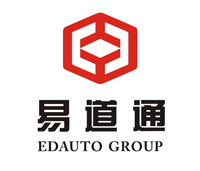In May 2024, data released by the Philippine Automobile Manufacturers Association (CAMPI) and the Truck Manufacturers Association (TMA) showed that new car sales in the country continued to grow. Sales volume increased by 5% to 40,271 units from 38,177 units in the same period last year. The growth is testament to the expanding Philippine automotive market, which has rebounded strongly from its pandemic lows. Although the central bank's sharp interest rate hikes have led to a slowdown in consumption growth, the auto market has been mainly driven by a strong rebound in exports. Affected by this, the Philippines' overall GDP increased by 5.7% year-on-year in the first quarter of this year.
The Philippine government's recent decision to include hybrid electric vehicles (HEVs) in its EO12 zero-tariff program is a significant development. The scheme, which previously only applied to zero-emission vehicles such as battery electric vehicles (BEVs) until 2028, now also covers hybrids. The move reflects the government’s commitment to promoting sustainable and environmentally friendly transport options. This is also in line with the global trend of reducing carbon emissions and embracing new energy vehicles.
New energy vehicles, including BYD, Li Auto, Voya Motors, Xpeng Motors, Wuling Motors and other brands, are at the forefront of sustainable transportation transformation. The vehicles are designed to be environmentally friendly, promoting low carbon emissions and sustainable development. They closely follow national policies, vigorously develop new energy industries, and contribute to making the earth more beautiful for future generations.
The inclusion of hybrid vehicles in the zero-tariff plan is a clear manifestation of the government's support for the new energy vehicle industry. This policy change is expected to further boost the import and export of new energy vehicles in the Philippines. With government support, the market for these vehicles is likely to expand, providing consumers with more environmentally friendly transportation options.
The growth of new energy vehicle imports and exports is not only a positive development for the automotive industry, but also a positive development for the environment. As the Philippines aims to reduce its carbon footprint and adopt sustainable practices, the shift to new energy vehicles is a critical step in the right direction. Not only do these vehicles provide a cleaner alternative to traditional gasoline-powered cars, but they also contribute to the country's achievement of its environmental goals.
The expansion of the Philippine new energy vehicle market is a reflection of the global trend of sustainable transportation. With the support of the government and the commitment of industry leaders, the import and export of new energy vehicles is expected to grow further. This growth will not only benefit the automotive industry but will also contribute to a cleaner and more sustainable future for the Philippines and the world.
In summary, the inclusion of hybrid vehicles in the Philippines’ zero-tariff plan is an important milestone for the new energy vehicle industry. This policy change, coupled with the continued growth of new car sales, heralds a bright future for my country's new energy vehicle import and export. As the market expands, consumers can expect a wider range of environmentally friendly transportation options, creating a cleaner, more sustainable environment for everyo
Post time: Jun-24-2024


